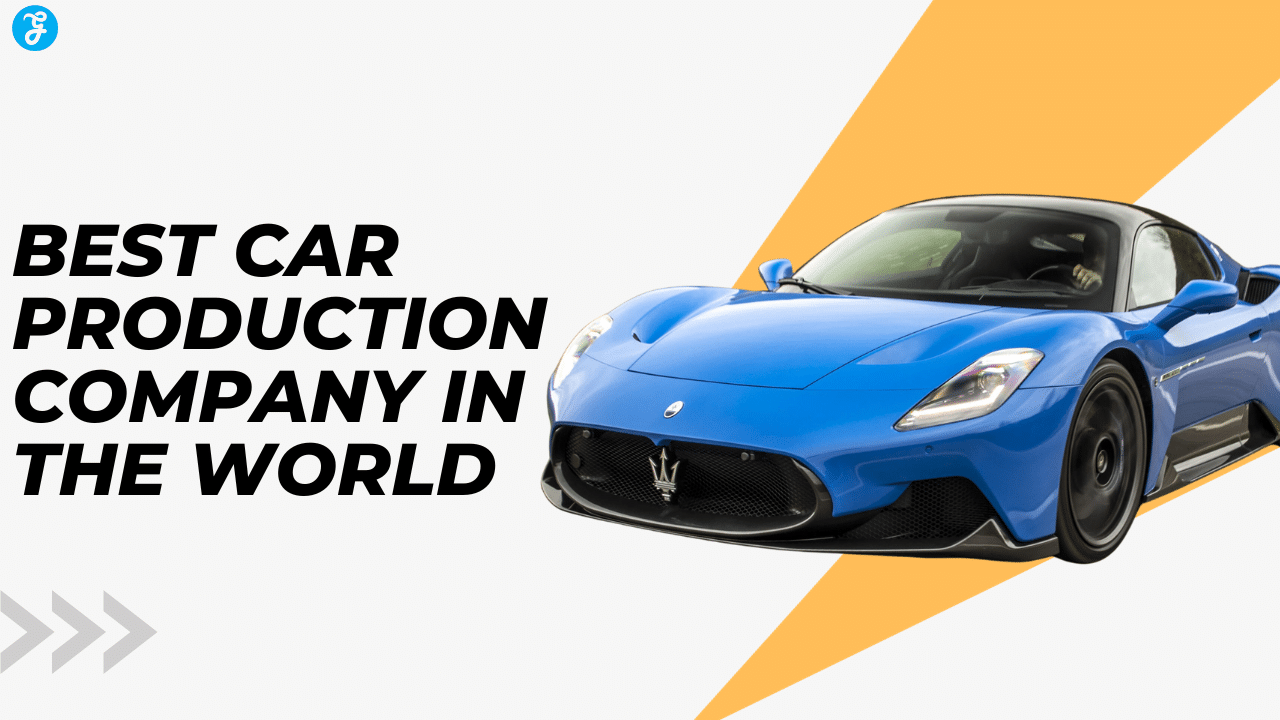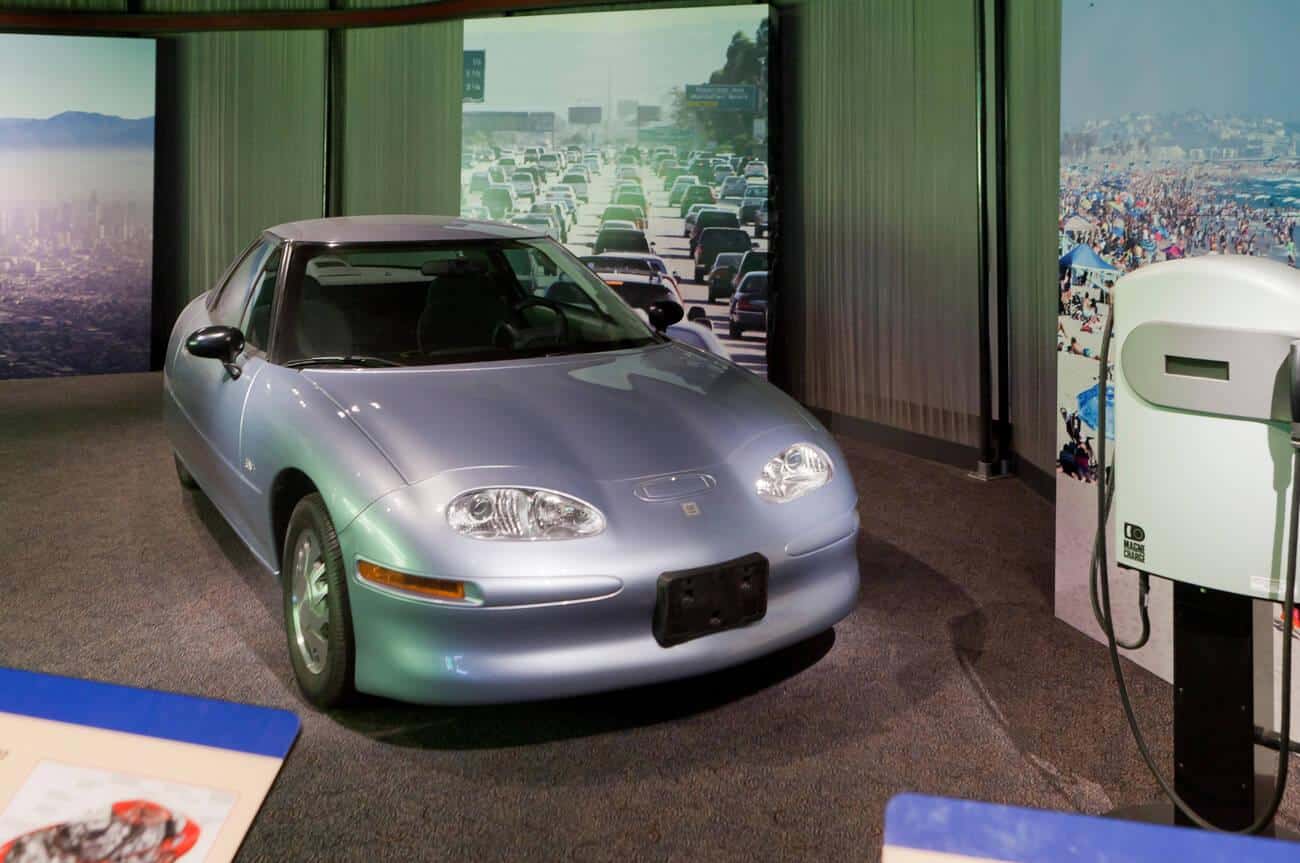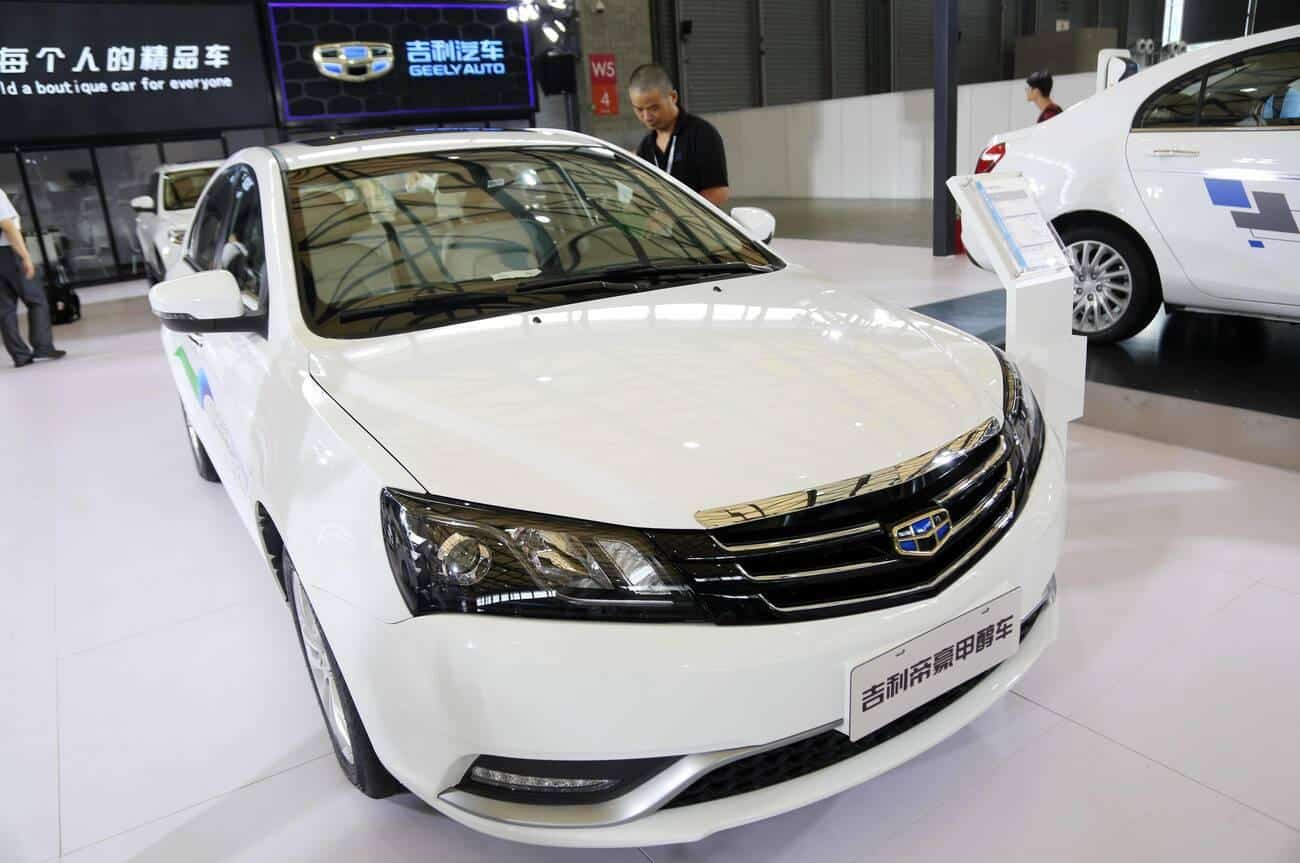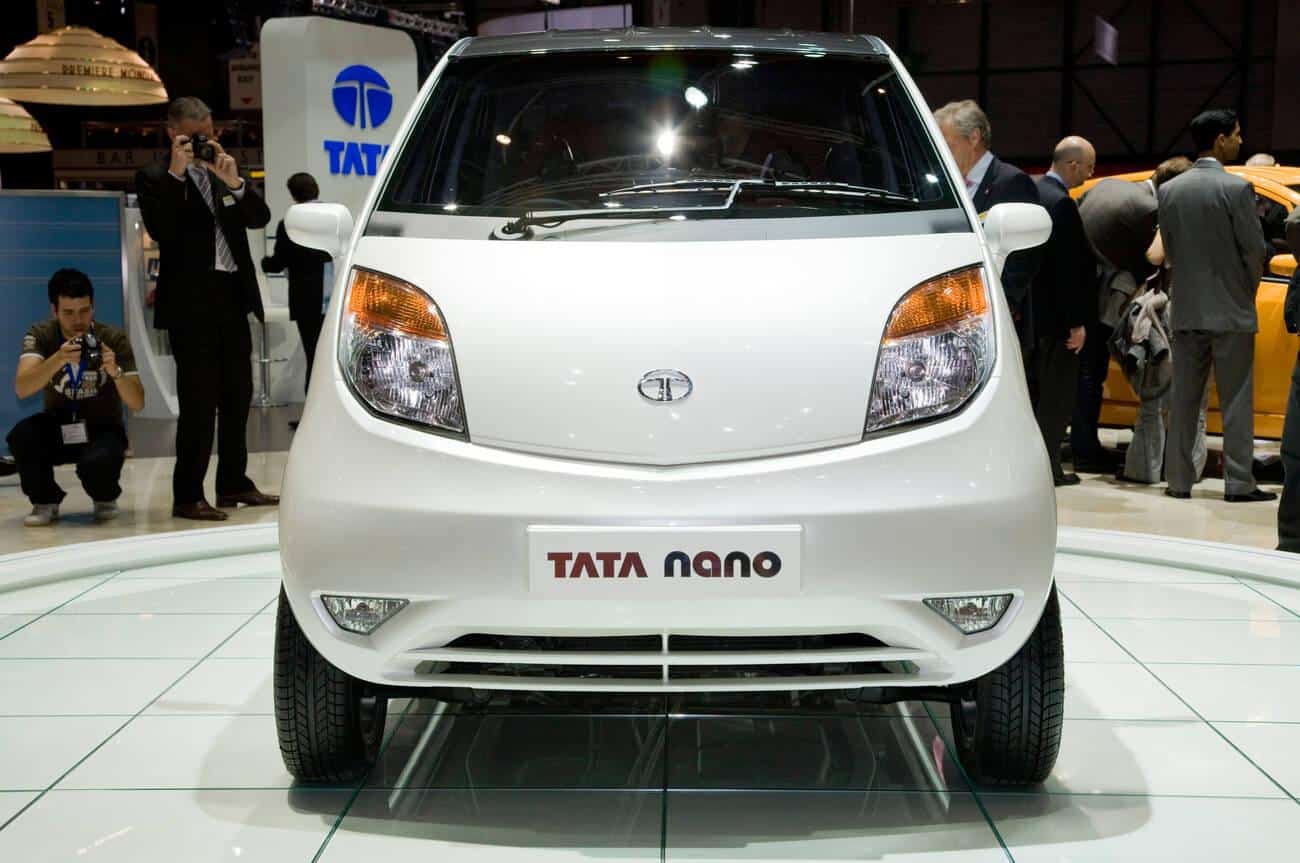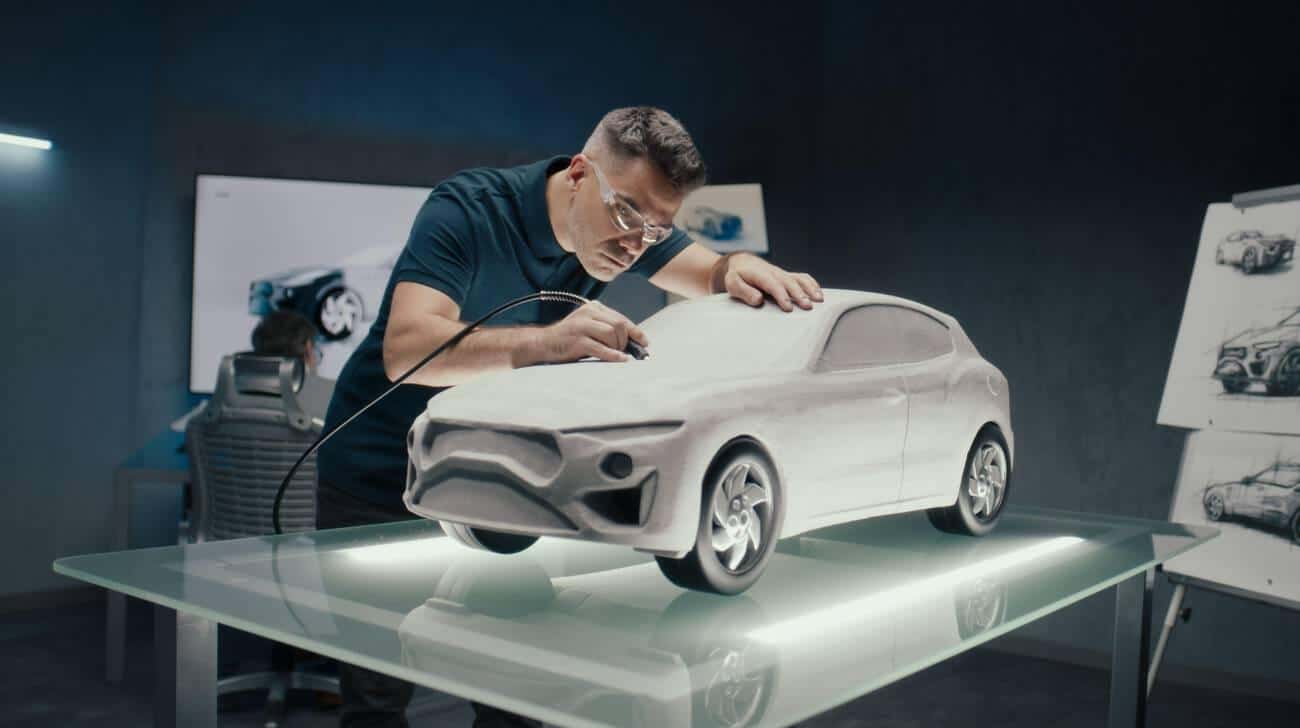Are you looking for the Best Car Production Company in the World that is leading production and sales figures? Car manufacturing is one of the largest industries and contributes to generating trillions of dollars worldwide.
In this article, we will explore some of the biggest players in car production and sales and compare their market performances. We will also discuss current trends, challenges, opportunities, innovations, technologies used in car production, and their impact on the environment.
So come along with us to discover who comes out on top!
- Largest car production company in 2022 with a diverse brand portfolio, strong innovation commitment, and a focus on electric vehicles.
- A major player is known for pioneering manufacturing techniques and hybrids, maintaining a global presence with a focus on reliability and sustainability.
- Emerged as a significant competitor through the merger of renowned brands, offering a diverse portfolio and emphasizing strategic alliances.
- Celebrated for luxury and cutting-edge technology, with a global presence and a strong commitment to electric and autonomous vehicles.
- With innovations such as autonomous driving technology along with the adoption of renewable energy sources, leading carmakers are taking necessary steps toward sustainable practices to reduce carbon emissions from factories and ensure long-term global sustainability goals long term
Top Automobile Companies in World By Sales
In 2022, the global automotive industry witnessed significant sales, with leading car producers like Toyota, Volkswagen, General Motors (GM), Honda, and Ford dominating the market. Here’s a closer look at the ranking of these motor vehicle manufacturers worldwide based on their global sales.
| Rank | Company | Headquarters | Revenue ($M) | Key Highlights |
|---|---|---|---|---|
| 1 | Volkswagen AG (Germany) | Wolfsburg, Germany | $295,819.8 million | Diverse brand portfolio and commitment to innovation. |
| 2 | Toyota (Japan) | Toyota City, Japan | $279,337.7 million | Pioneering manufacturing techniques and global reach. |
| 3 | Stellantis (Netherlands) | Netherlands | $176,663 million | Merger of renowned brands, diverse portfolio. |
| 4 | Mercedes-Benz Group (Germany) | Germany | $158,306.1 million | Luxury vehicles and cutting-edge technology. |
| 5 | Ford Motor (United States) | United States | $136,341 million | Iconic vehicles, sustainability, global presence. |
| 6 | BMW (Germany) | Germany | $131,521.6 million | Luxury, performance, innovation, electric vehicles. |
| 7 | Honda (Japan) | Japan | $129,546.9 million | Reliability, fuel efficiency, diverse product lineup. |
| 8 | General Motors (United States) | United States | $127,004 million | Iconic brands, electric and autonomous technologies. |
| 9 | SAIC (China) | China | $120,900.2 million | Joint ventures, diverse product portfolio, innovation. |
| 10 | FAW Group (China) | China | $109,404.7 million | Wide range of vehicles, significant domestic presence. |
| 11 | Hyundai (South Korea) | South Korea | $102,775 million | Quality, affordability, investments in green tech. |
| 12 | Dongfeng (China) | China | $86,122 million | Collaboration with global brands, adaptability. |
| 13 | Nissan (Japan) | Japan | $74,994.9 million | Global reach, electric vehicle focus. |
| 14 | BAIC Group (China) | China | $74,687.3 million | Diverse portfolio and ambitions for global leadership. |
| 15 | GAC Group (China) | China | $66,955.2 million | Expansion, quality, sustainability. |
| 16 | Kia (South Korea) | South Korea | $61,049.8 million | Quality, design, affordability, electric vehicles. |
| 17 | Renault (France) | France | $54,639.2 million | European flair, diverse product range. |
| 18 | Geely (China) | China | $55,860.1 million | Ownership of global brands and innovation. |
| 19 | Tesla (United States) | United States | $53,823 million | Electric vehicle pioneer, sustainability. |
| 20 | Volvo (Sweden) | Sweden | $43,388.4 million | Safety, quality, Scandinavian design, eco-friendly. |
| 21 | Tata (India) | India | $37,797.2 million | Expanding international presence and innovation. |
| 22 | Suzuki (Japan) | Japan | $31,765.4 million | Compact vehicles, efficiency, global presence. |
Table: Top Automobile Companies in the World By Sales Revenue
1. Volkswagen AG (Germany)
Volkswagen AG, headquartered in Wolfsburg, Germany, reaffirmed its position as the world’s largest car production company in 2022, with a staggering revenue of $295,819.8 million. The company’s diverse brand portfolio, which includes Volkswagen, Audi, Porsche, and more, caters to a wide range of consumers. Volkswagen is known for its commitment to innovation, quality, and sustainability.
Manufacturing facilities and an extensive dealership network in numerous countries mark the company’s global presence. Volkswagen AG has been actively embracing electric vehicle technology, with the ID series as a prime example, demonstrating its determination to lead in the evolving automotive landscape. In addition, you can also read an article on- Rivian R1S Review: Explore the Performance, Features, and Others
2. Toyota (Japan)
Toyota, headquartered in Toyota City, Japan, remained a major industry player in 2022, generating substantial revenues of $279,337.7 million despite slipping to second place. Toyota is renowned for its commitment to quality and innovation. The company’s legacy includes pioneering manufacturing techniques like the Toyota Production System (TPS) and leading the way in hybrid technology with the iconic Prius.
Toyota’s global reach, dedication to reliability, and longevity have solidified its status as a trusted automaker. In a competitive market, Toyota continues to invest in sustainability and technological advancement to maintain its formidable position.
3. Stellantis (Netherlands)
Stellantis emerged as a formidable competitor in 2022, securing the third position with revenues of $176,663 million. Headquartered in the Netherlands, Stellantis represents a merger of several renowned brands, including Fiat, Chrysler, Peugeot, and more. This amalgamation has positioned Stellantis as a significant player in the global automotive landscape.
The company’s diverse portfolio allows it to cater to various markets and segments, showcasing its potential to challenge industry leaders. Stellantis’s rise signifies the importance of strategic alliances in the automotive industry. Additionally, you can also read about- Audi Q8 E-Tron Review: Range, Performance and Luxury Electrified
4. Mercedes-Benz Group (Germany)
Germany’s Mercedes-Benz Group claimed the fourth spot with revenues of $158,306.1 million in 2022. Mercedes-Benz is celebrated for its luxury vehicles and cutting-edge technology. The brand’s commitment to quality and performance has garnered a loyal customer base worldwide.
Mercedes-Benz Group’s global presence is marked by a network of dealerships and manufacturing facilities in key markets. The company continues to innovate in the luxury segment and invests in electric and autonomous vehicle technologies to stay competitive and relevant in the ever-evolving automotive landscape.
5. Ford Motor (United States)
Ford Motor, a prominent American automaker, stood at the fifth position with revenues totaling $136,341 million in 2022. Ford has a storied history and a diverse lineup of vehicles, from trucks and SUVs to electric cars. The company’s commitment to innovation, sustainability, and iconic vehicles like the Ford F-Series trucks has solidified its position in the industry.
With a global presence and a legacy of innovation, Ford continues to adapt to changing consumer preferences and technological advancements, ensuring its relevance in the competitive automotive market. If you want you can also read- Polestar 2 Review: Range, Charging Speed and Other Key Features [Expert Insights]
6. BMW (Germany)
BMW, a renowned German automaker, secured the sixth position in 2022 with impressive revenues of $131,521.6 million. BMW is synonymous with luxury, performance, and innovation. The company’s extensive portfolio includes premium vehicles, from sports cars to SUVs, catering to a discerning global clientele.
BMW’s commitment to innovation is evident in its electric and hybrid offerings, such as the BMW i3 and iX3, highlighting its adaptability in an evolving automotive landscape. BMW continues to be a symbol of German engineering excellence and a trailblazer in luxury vehicle technology.
7. Honda (Japan)
Honda, a revered Japanese automaker, occupied the seventh position with revenues amounting to $129,546.9 million. Honda is celebrated for its reliability, fuel efficiency, and innovative engineering. The brand’s diverse product lineup spans motorcycles, cars, and power equipment, catering to a wide range of consumer needs.
Honda’s commitment to research and development is unwavering, allowing it to introduce cutting-edge technologies like the Honda Sensing suite of safety features. With a reputation for durability and dependability, Honda continues to lead in automotive excellence.
8. General Motors (United States)
General Motors (GM), a storied American car manufacturer, generated significant revenues of $127,004 million, securing eighth place. GM boasts a rich history and a portfolio of iconic brands, including Chevrolet, GMC, Cadillac, and more. A commitment to electric and autonomous vehicle technologies bolsters the company’s global presence.
Initiatives like the Chevrolet Bolt EV and the development of self-driving cars signify GM’s readiness to adapt to the evolving automotive landscape. GM continues to innovate and evolve as one of the cornerstones of the American automotive industry.
You May Find Interest: BMW iX Review: Is It the Game-Changer in Electric Mobility
9. SAIC (China)
China’s SAIC secured the ninth position with revenues of $120,900.2 million, exemplifying China’s growing role in the global automotive market. SAIC, a major player in China’s burgeoning automotive industry, operates joint ventures with global automakers such as General Motors and Volkswagen.
The company’s diverse product portfolio, spanning conventional and electric vehicles, reflects its commitment to innovation. SAIC’s expansion and success are emblematic of China’s emergence as a formidable player in the global automotive landscape.
10. FAW Group (China)
FAW Group, another prominent Chinese automotive company, claimed the tenth spot with revenues totaling $109,404.7 million. FAW Group is a key player in China’s automotive landscape, producing a wide range of vehicles, including passenger cars, commercial trucks, and buses.
The company’s significant presence in the domestic market underscores China’s ascent as a powerhouse in the global automotive industry. FAW Group’s ability to adapt to changing market dynamics and its commitment to innovation position it for continued growth and success.
11. Hyundai (South Korea)
Hyundai, a South Korean automaker, ranked eleventh with revenues of $102,775 million. Hyundai has built a strong global presence by combining quality and affordability. The brand’s commitment to innovation is evident in its investments in electric and hydrogen fuel cell vehicles.
Hyundai’s eco-friendly initiatives, like the Hyundai Nexo fuel cell SUV, demonstrate its commitment to sustainable mobility. As a prominent player in the automotive market, Hyundai continues to compete and innovate on a global scale. In addition, you can also read an article on- Hyundai Kona Electric Review: Pricing, Performance, and Latest Updates in 2023
12. Dongfeng (China)
Dongfeng, yet another significant Chinese automotive company, held the twelfth position with revenues of $86,122 million. Dongfeng is a major player in China’s automotive landscape, collaborating with international brands like Nissan and PSA Group.
The company’s diverse product range encompasses passenger cars, commercial vehicles, and more, reflecting its adaptability to changing market demands. Dongfeng’s presence and growth underscore China’s increasing influence in the global automotive industry.
13. Nissan (Japan)
A well-established Japanese car manufacturer, Nissan secured the thirteenth position with revenues of $74,994.9 million. Nissan’s global reach, innovative technologies like the Nissan Leaf electric vehicle, and a strong presence in key markets are indicative of its prominence in the industry.
Nissan’s commitment to electric and autonomous vehicle development positions it as a competitive force in the evolving automotive landscape.
14. BAIC Group (China)
China’s BAIC Group claimed the fourteenth spot with revenues totaling $74,687.3 million. BAIC Group operates a diverse portfolio of brands and joint ventures with international companies. Its growth reflects China’s ambition to be a global automotive leader. The company’s commitment to innovation and expansion in China and abroad showcases its potential to become a dominant player on the global stage. If you want you can also read- Tata Nexon EV Facelift Review: The Most Affordable Electric SUV in India
15. GAC Group (China)
GAC Group, a Chinese automotive giant, occupied the fifteenth position with revenues amounting to $66,955.2 million. GAC Group’s domestic and international expansion demonstrates China’s increasing influence in the automotive market.
The company’s focus on quality, innovation, and sustainability has contributed to its success in a competitive landscape. GAC Group’s continued growth underscores China’s emergence as a major player in the global automotive industry.
16. Kia (South Korea)
Kia, hailing from South Korea, ranked sixteenth with revenues of $61,049.8 million. Kia has made remarkable strides in the automotive industry with its commitment to quality, design, and affordability. The brand’s diverse lineup of vehicles, from compact cars to SUVs, caters to a broad consumer base.
Kia’s dedication to innovation, exemplified by its electric and hybrid offerings, has allowed it to gain a strong foothold in the global market. As an integral part of the Hyundai Motor Group, Kia continues to contribute to South Korea’s prominence in the automotive world.
17. Renault (France)
Renault, a French automaker, secured the seventeenth position with revenues of $54,639.2 million. Renault has a storied history in the automotive industry and is known for its distinctive European flair. The company’s diverse product range includes everything from compact cars to commercial vehicles.
Renault’s global presence is marked by a strong presence in Europe and strategic alliances with other automakers. The brand’s commitment to innovation and sustainability underscores its role as a significant player in the industry.
18. Geely (China)
China’s Geely held the eighteenth position with revenues totaling $55,860.1 million. Geely has made remarkable progress in China’s automotive landscape and beyond. The company’s ownership of brands like Volvo and Polestar highlights its global ambitions.
Geely’s focus on innovation is evident in its electric and hybrid technology investments. As one of China’s leading automakers, Geely’s growth signifies China’s increasing influence in the global automotive market. Additionally, you can also read about- Mercedes-Benz EQS SUV Review: Features, Range and Performance Details
19. Tesla (United States)
Tesla, an American electric vehicle pioneer, ranked nineteenth with revenues of $53,823 million. Tesla has revolutionized the automotive industry with its electric vehicles and innovative technology. The brand’s commitment to sustainability, autonomous driving, and energy solutions has garnered global attention.
Tesla’s Model 3, Model Y, and the expansion of its Gigafactories underscore its leadership in the electric vehicle sector. The company’s disruptive influence continues to shape the future of mobility.
20. Volvo (Sweden)
Volvo, a Swedish car manufacturer, claimed the twentieth spot with revenues of $43,388.4 million. Volvo is synonymous with safety, quality, and Scandinavian design. The brand’s dedication to safety innovations has set industry standards.
Volvo’s product lineup, which includes a range of SUVs and luxury vehicles, appeals to consumers seeking a premium driving experience. The company’s commitment to sustainability is reflected in its electric and hybrid offerings, positioning it as a leader in eco-friendly transportation.
21. Tata (India)
India’s Tata Motors ranked twenty-first with revenues of $37,797.2 million. Tata Motors is a significant player in India’s automotive industry and has expanded its reach internationally. The company’s diverse product portfolio spans passenger, commercial, and utility vehicles. Tata’s ownership of Jaguar Land Rover showcases its global aspirations. Tata’s dedication to innovation is evident in its development of electric and connected vehicles, contributing to India’s presence on the global automotive stage.
22. Suzuki (Japan)
Suzuki, another Japanese automaker, rounded out the list in the twenty-second position with revenues of $31,765.4 million. Suzuki is renowned for its compact cars, motorcycles, and small SUVs. The brand’s focus on efficiency, affordability, and reliability has made it popular in various markets. Suzuki’s global presence, particularly in emerging economies, reflects its adaptability to diverse consumer preferences.
Market Performance and Trends
The Japanese car giant, Toyota, has dominated the global market, with its sales growing steadily. Ford has experienced significant growth in sales despite intense competition from rival manufacturers.
Electric vehicles have become a major player in the automotive industry as they continue gaining consumer popularity.
Market Dominance of Toyota
Toyota remains the world’s number one car production company by revenue and sales. The Japanese automaker saw 8.9 million vehicles sold globally in 2022, making it the overall leader among automakers with a 10.5% market share.
This was due to its continuously diverse and high-quality vehicle lineups that appeal to customers worldwide, as well as excellent customer service policies that endear Toyota to many customers who are loyal patrons of their brand.
Though other competitors have been able to close the gap between first-place and second-place since 2020, analysts point out that much of this is attributable to economic conditions such as increased import taxes for certain cars not produced domestically or restricted access to new markets overseas due to political tensions more than anything else.
Despite these factors, Toyota has maintained its lead with innovative technology advances like autonomous driving features and electric vehicle technologies pushing them further ahead of the competition in terms of sales growth and profits earned from both production cost savings opportunities realized through efficiencies enhanced product higher margins delivered through product differentiation unique mechanics adopted only by Toyota which have made shown immensely successful.
Ford’s Growth in Sales
Ford began the first quarter of 2022 on a high note, with sales increasing by 10.7 percent from the previous year, fueled by their iconic, commercial, and electric vehicles.
Ford’s profitability was also enhanced due to increased net pricing, a favorable mix of products, and increased vehicle volume. Since then, Ford has enjoyed significant success in its shifting sales that reflect the popular demand for trucks and SUVs across America – capturing even more market share in this critical segment through eye-catching car designs unveiled in 1952, 1955, and 1957.
The growth can surely be attributed to the increasing number of customers favoring these iconic models, such as the F-150 series pickup truck, and the increased adoption of electric vehicular technologies enabled by use cases like emission waivers provided under EPA guidelines.
Key Players in the Electric Vehicle Market
Tesla is at the forefront of the electric vehicle industry, leading global sales and production. Tesla has disrupted many traditional automakers with its moves to introduce innovative automotive technology, and its Model 3 has become the world’s best-selling EV model for two years running now.
Other leading companies like Volkswagen AG have also made big investments in e-mobility, introducing several plug-in hybrids and all-electric models. Ford announced that they plan to convert their entire lineup into EVs by 2030, while Honda plans to make two-thirds of their vehicles electrified during this same period.
Market leader Toyota is making efforts towards furthering hybrid technologies and taking a proactive approach to battery cell development to stay competitive. Major Japan-based automakers such as Nissan, Mazda, and Mitsubishi are also investing heavily in electric car research and development along with established enterprises from Korea like Hyundai and Kia Motors making the aggressive moves onto all-electric platform development for their brand new cars, Hyundai IONIQ 5 and Kia EV6 respectively.
You May Find Interest: Nissan Leaf Review: MPGe Efficiency, Performance and More [Detailed Guide]
Emerging Markets and Their Impact on Car Production and Sales
Emerging markets have been a major catalyst in driving growth for the global automotive industry. China and India, two of the largest emerging markets, both contribute a significant share of the sector’s total GDP output.
As these countries continue to grow economically, their demand for automobiles is rising rapidly and provides tremendous opportunities for car manufacturers. Additionally, new technologies have contributed to this rapid market expansion by stimulating economic activity and growth through increased efficiency and investment in different technological solutions, such as autonomous driving systems.
This increase in demand has paved the way for strong revenue projections in the upcoming years, with global automotive sales expected to reach nearly 2 trillion US Dollars by 2024. Emerging markets are predicted to be some of the largest contributors towards this market growth over this period, where vehicle production volumes are projected to experience significant growth from 2018-2024, especially in Asia Pacific regions like China. If you’re interested, also read on – Hyundai Kona
Challenges and Opportunities in the Industry
From supply chain disruptions to increasing demand for electric vehicles, industry players face a variety of obstacles and opportunities when it comes to car production and sales. Dive deeper into the complexities of today’s automotive market to understand these unique challenges and potential rewards.
Supply Chain Disruptions and Their Impact on Production
Supply chain disruptions have tremendously impacted production and sales in the automotive industry, particularly over the last year. The main challenge has been the lack of visibility in supply chains, leading to overstocked inventories that are difficult to manage.
Manufacturers have faced more delays in critical component delivery, resulting in global automotive supply chains facing instability due to fluctuations in international trade. These disruptions could cause even further difficulty for companies expected this upcoming year, with statistics such as those by KPMG showing that nearly three-quarters of car makers are expecting an additional 8-16% drop or delay within their global supply chain processes, which would further disrupt production capabilities.
Companies must now face decisions on adjusting strategies or adapting their existing solutions accordingly for optimal throttling down of resources but at minimal interruptions — all while ensuring customer safety and satisfaction throughout it all.
Increasing Demand for Electric Vehicles
With the heightened awareness and growing concern about the carbon emissions from petrol-powered cars, electric vehicles are increasingly becoming popular. The demand for electric cars has surged in recent years due to favorable government policies promoting their adoption and increasing industry buy-in and consumer interest.
In 2020 alone, sales of electric vehicles increased by an impressive 35% compared to 2019 figures. This accentuates an underlying trend that is shifting the automotive sector’s future towards embracing electric mobility solutions.
The market share of passenger car EVs has grown since 2010; meanwhile, several automotive companies have been evolving their fleets to include EVs steadily, paving the way for mass adoption going forward.
Shifting Consumer Preferences and Trends
The automotive industry has been adapting to changing consumer tastes and preferences in recent years as digital transformation and emerging technologies start to shape the global car market.
Consumers are now becoming increasingly interested in the features that come with vehicles beyond engine power, cargo capacity, safety ratings, etc. Beyond this, consumers are demanding customizations like color options or specialized extras, while others are looking for holistic experiences from their vehicle fleets, such as shared mobility services, rather than outright ownership of one car or a luxury sedan.
With various multimedia systems available, ride customization is also influencing how consumers make choices when it comes to buying cars as they look forward to e-hailing services combining private cars with public transport.
Electric vehicles have emerged as the obvious choice for eco-friendly drivers keen on reducing emissions, and a growing customer demand is seen relating to electric cars instead of petrol-driven engines.
Innovations and Technologies in Car Production
Major automotive companies worldwide are investing heavily in driverless technologies, electric vehicle technology, and sustainable manufacturing practices to reduce their environmental impact.
Autonomous Driving Technologies
Autonomous driving technologies refer to the use of artificial intelligence, computer vision, and other advanced driver assistance systems in cars that allow them to drive safely without human intervention.
This technology allows cars to accurately detect obstacles and navigate complex environments with near-human levels of accuracy. It is revolutionizing the automotive industry as it has the potential to make roads safer, reduce traffic congestion, and improve fuel efficiency by 4-10 percent.
Autonomous vehicles are reducing reliance on humans by taking over certain tasks such as parking or navigating through traffic jams, allowing drivers more time behind the wheel, and increasing overall road safety.
Electric Vehicle Technology Advancements
Over the past decade, electric vehicle technology has seen impressive growth and advancements. This has driven innovations in battery technology, charging infrastructure development, electric drivetrain modernization, and autonomous driving capabilities.
All these developments have played a pivotal role in the rise of the electric car industry and its dominance today. The growing availability and affordability of EVs means that they are becoming increasingly adopted around the world to reduce emissions from road transport—which accounts for almost 15% of global energy-related emissions.
With continued support from governments around the world, manufacturers are investing billions in research and development to improve further existing electric vehicle technologies such as batteries, charging infrastructure, powertrains, and autonomy systems with various innovative features such as range extenders or solar chargers being developed at lightning speed – propelling EV’s even further away from their traditional counterparts towards fully sustainable solutions.
Sustainable Manufacturing Practices
Sustainable manufacturing is an important priority in the automotive industry to reduce negative environmental impacts. Manufacturers are increasingly utilizing eco-friendly materials and integrating technologies such as renewable energy sources to help minimize their carbon footprint.
This includes minimizing waste, reducing water usage, using recycled parts and materials in production processes, and conserving natural resources. Car companies have developed various green technologies to ensure sustainability without compromising on quality or appearance – from Ford’s electric van that uses 95% recycled plastic materials to Honda’s wind turbines that generate 100 megawatts of electricity for their local factory operations in Japan.
Adopting these practices helps communicate a positive message about the company’s commitment towards sustainability while also showcasing environmentally friendly solutions available within the automotive industry.
Connected Car Technologies
Connected car technologies are transforming the automotive industry by leveraging internet-connected services to enable a range of convenience and safety features. Connected cars rely on the Internet of Things (IoT) to allow for remote vehicle control, real-time navigation, automated emergency response systems, vehicle diagnostics, geofencing capabilities, and infotainment services such as music streaming and real-time traffic data.
These technologies provide drivers with efficient route planning options and increased awareness of road conditions in order to reduce CO2 emissions while improving driving experiences.
In addition, OEMs have established their own connected service accounts that offer additional revenue streams through subscription services such as online entertainment or communication platforms based on subscription fees.
This allows automakers to target different customer bases depending on age groups or lifestyle habits; ensuring everyone can create an individual car experience according to their current needs.
Impact of Car Production on the Environment
Car production significantly contributes to environmental pollution, making it essential for companies to implement eco-friendly manufacturing practices and adopt renewable energy sources.
Read on to learn more about the various ways in which car production impacts the environment.
Carbon Emissions and Climate Change
Car production and the transport sector contribute to a significant proportion of global carbon emissions. The combination of burning gasoline and diesel for engines as well as non-renewable manufacturing processes, produces harmful greenhouse gases such as CO2 that contribute to an enhanced warming effect and resulting climate change.
Though progress has been made towards reducing the pollution created from car production from better fuel efficiency technology and hybrid and electric vehicles, cars still remain one of the leading sources of global greenhouse gas emissions, with SUVs particularly being a major contributor.
This is why businesses across the automotive industry are striving to adopt more sustainable practices in production, which will allow us to reduce needless consumption while preserving natural resources for future generations.
Sustainability Initiatives by Car Companies
Car companies worldwide are proactively implementing sustainability initiatives and technologies to reduce the impact of automotive production on the environment. In recent years, car manufacturers have increasingly focused on reducing their carbon footprint while also creating more emission-free vehicles.
One example is Toyota Motor Corporation which has implemented sustainable manufacturing practices, including using renewable energy sources for most of its factories and recycling plastic and other materials like aluminum, among others, to conserve resources.
Moreover, Ford Motors put forward plans earlier this year to make all their European production sites climate-neutral by 2035 – committing them to using 100% renewably powered plants across Europe by that date.
Similarly, Hyundai/Kia plans to reduce greenhouse gas emissions in their powertrain components by 25 percent or more from 2020 levels by 2030, among many other goals set under the Sustainable Mobility & Environmental Protection Plan (SMEP).
Adoption of Renewable Energy Sources
Car companies are increasingly turning towards renewable energy sources to power their car production facilities. Renewable energy sources reduce overall greenhouse gas emissions from the automotive industry and help mitigate climate change.
With the increased focus on sustainability, renewable energy is becoming an integral part of many car company’s practices when it comes to producing cars. A car company can utilize renewable energy for its manufacturing processes in various ways, such as utilizing geothermal heat pumps, hydropower turbines, solar cells, and more.
Using these technologies provides multiple benefits, from reducing reliance on fossil fuels resulting in lower carbon emissions, to lowering operational costs substantially for the manufacturers.
The use of renewable energies also demonstrates a commitment by car companies to make positive changes that promote sustainability and lessen the environmental impact of their operations.
Recycling and Waste Management in Car Production
Car production creates a significant amount of waste and often harms the environment. However, car companies are investing in sustainable solutions to reduce their environmental footprint.
Recycling and reusing materials from vehicles provide one way for manufacturers to reduce waste, which has ripple effects on other industries representing an opportunity for economic growth.
For example, automobile recyclers provided $25 billion in recycled parts each year in the U.S., providing six percent of all automotive aftermarket sales volume. Moreover, implementing circular manufacturing involves producing cars with supports at least partially made out of reused components to minimize landfill contribution as well as releasing fewer pollutants when manufacturing new parts from scratch.
Circular manufacturing helps manufacturers cut costs too, helping them remain competitive by optimizing resources and reducing emissions through reuse instead of generating more exhaust when creating a part using raw material inputs each time needed.
Read Also: Gasoline Cars
Frequently Asked Questions (FAQs)
Now learn about some common FAQs on this topic.
1. Who are the best car production companies in the world?
The top car production companies in the world by production and sales include Toyota, Volkswagen, Hyundai-Kia, General Motors, and Ford.
2. How does a company become one of the best car manufacturers?
Becoming one of the best car manufacturers in the world requires an efficient production process that meets customer demand while also keeping costs low. Additionally, research and development must be continuously carried out for new products or technologies to remain competitive with market trends.
3. What do I need to know when purchasing a vehicle from any of these companies?
Research is essential before buying a vehicle from any company as different models may be more suitable based on budget or personal needs such as space requirements or fuel efficiency choices. Also important are third-party reviews regarding safety records or reliability history, which can help inform your purchase decision effectively.
Takeaway
The motor vehicle industry is extremely competitive, with international car companies competing to be the best in production and sales. Companies such as Toyota, Volkswagen Group, General Motors, Ford, and Honda Motor are among the top producers of cars worldwide based on revenue figures.
These companies have also achieved success in terms of unit sales and production numbers since 2018. In addition to these established players, however, there are several emerging markets that have contributed significantly in recent years with their increased investment in manufacturing practices and innovations for electric vehicles.

